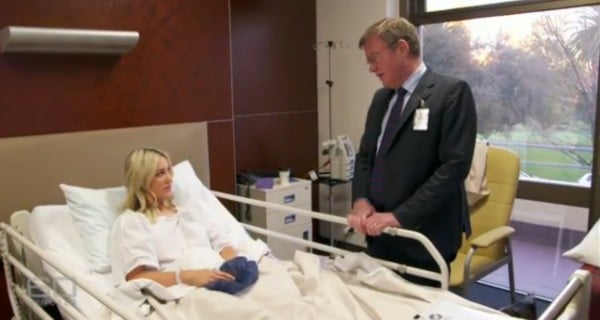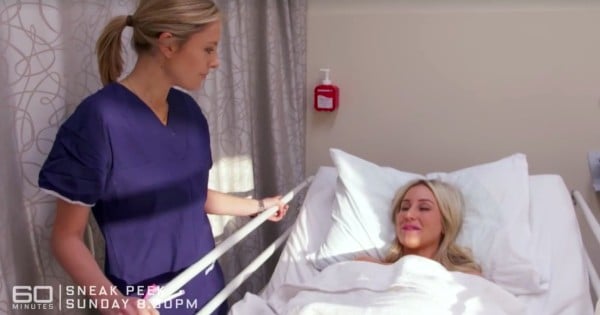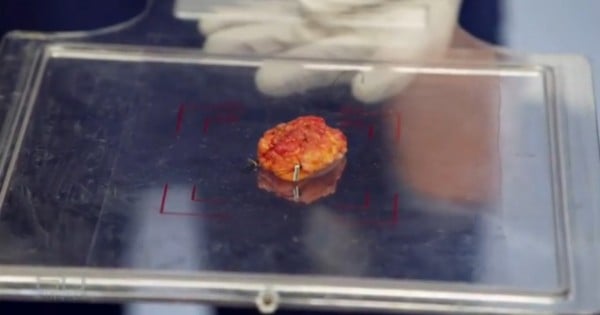Roxy Jacenko‘s interview with 60 Minutes last night has certainly got people talking.
The PR firm founder spoke about life with her husband in prison, looking after her two young children singlehandedly and put to bed any rumours that she “lied” about having cancer by filming her surgery to remove the very real breast cancer.
The 36-year-old also revealed that despite recommendations from surgeons from Sydney’s St Vincent Hospitals that she undergo a full mastectomy, she decided against it.
“I suppose unlike everything else in my life where I go full pelt, this was one thing I wanted to do in what I guess you could call a ‘phased’ approach rather than going ‘OK, we’ll chop off my boobs’,” she said during the interview.
“I also think we need to have a look at what has transpired in the last six weeks of my life and making such rash and big decisions right now, I don’t think I’m in the head space to do it.”
A mastectomy required the removal of the breast, nipple, areola and sentinel lymph nodes.




Top Comments
Her doctors didn't seem to have a problem with her having a lumpectomy
Roxy is a smart girl and will decide what's best for her when she's good and ready I would say. She's no dummy and I doubt she needs our opinion to make up her mind. She's so type A she's probably read every book and paper on breast cancer and knows just as much as her surgeons. You go girl. Kick ass and keep your attitude!.
Really? you really think she knows just as much as her surgeons? Smart?
Will medical schools now start to recruit shallow, narcissistic, fake, morally bankrupt attention seekers? Wow! can't wait for Dr Kardashian to start practising!
Oh please do not compare her to kim k that's really low. You don't get as far as Roxy has by being an airhead, there's no release of sex tapes for fame and piggy backing on sisters business acumen here. You can see she is a hard worker and I have no doubt of her intelligence and tenacity and determination. I hope one thing she does take from this is to shed any of that preconception and really knuckle down and show what she is made of. Turn that misconception around and really be a role model for girls everywhere.
Not sure that being Type A means she is either particularly clever or medically skilled. Just pushy. Why else are we hearing about all this when in effect it's a massive extended promotion for her PR agency and a rear-guard action to combat the effect of her husband's jail sentence? Because whatever she might think about "hard work" and "not asking questions", that's not how the NSW Supreme Court saw it when he was jailed for insider trading.
No she doesn't need our opinion. But she should certainly listen the opinions of medical specialists...